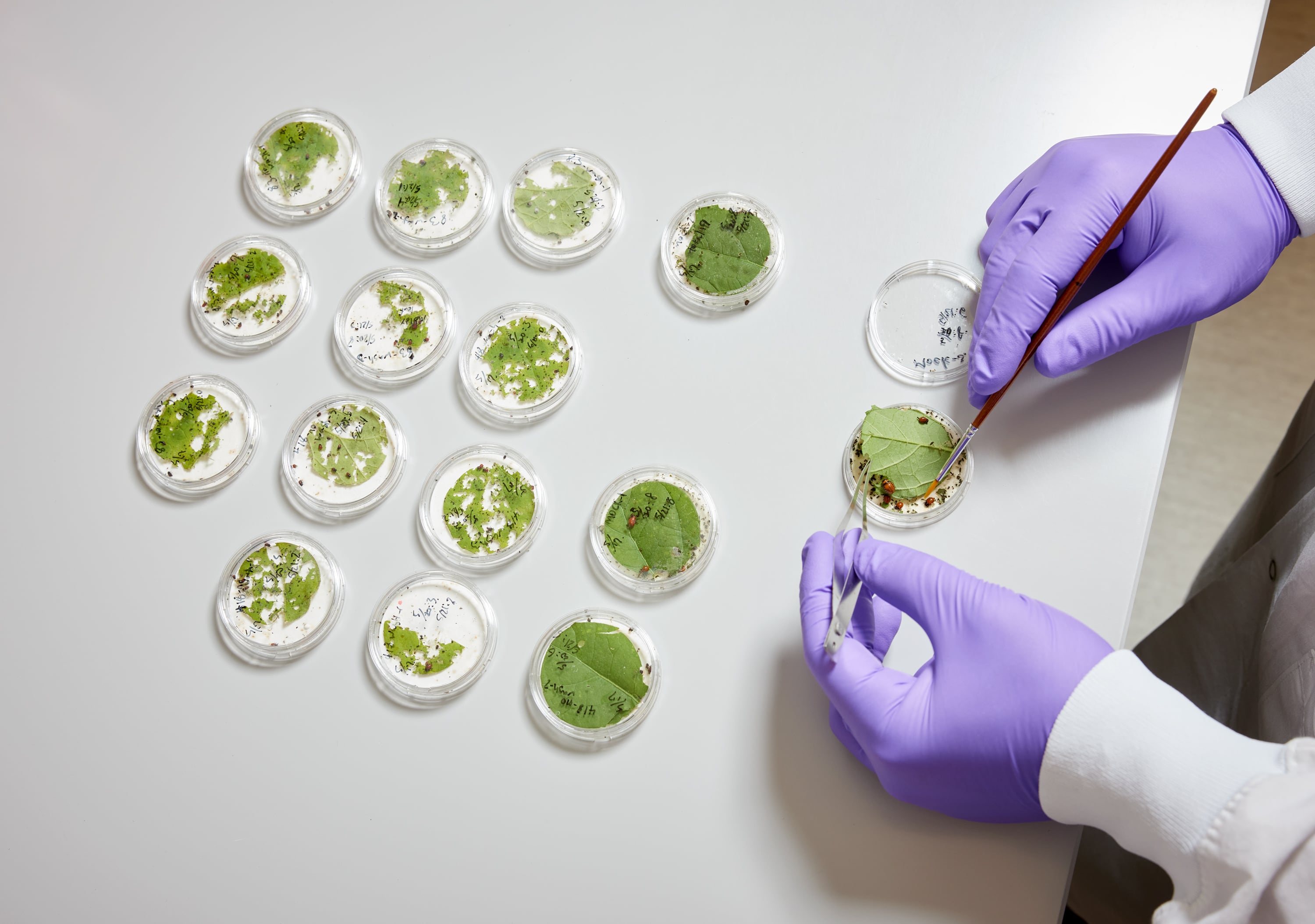Azotic Technologies has been awarded £500,000 from the UK’s Advanced Research and Invention Agency (ARIA) to make a low-cost, practical method of reprogramming plants by applying a microbial product to seeds or standing crops.
The York-based company, founded in 2012 as a spin-out from the University of Nottingham, will employ the same bacterium that it already uses in its flagship nitrogen-fixing product Envita (known as Encera in Europe).
The active ingredient in these products, Gluconacetobacter diazotrophicus, “possesses the unique natural ability to colonise a plant’s cells, fix nitrogen and promote growth,” explained Dr Adriana Botes, Azotic’s Research and Development Director. “But that’s not all it can do.”
Once the bacterium has entered the plant cell it can be used to produce and release a variety of bioactive molecules that can effectively “reprogram” crops to display additional beneficial traits, or tackle threats to yield and quality such as fungal disease, or insect pests.
Protection from ‘the inside out’
The project hopes to demonstrate how the bacterium’s unique ability to live and multiply inside plant cells can be harnessed, modifying the bacterium to produce and deliver bioactive molecules to reprogram plants “from the inside out,” she said.
These molecules can reduce or replace the need for synthetic pesticides, Dr Botes added, as well as help protect crops against the effects of climate change without genetic modification or gene editing of the plant.
Of particular interest is its ability to produce dsRNA (double-stranded RNA). This can silence target genes by binding to mRNA, preventing translation of the mRNA to essential proteins.
Practical, low-cost solutions needed
The concept of gene silencing to program plants is not new, Dr Botes said, but existing gene-silencing methods have limitations that make them expensive, unappealing, impractical or ineffective.
“While we can genetically modify plants to silence one of its own genes or that of an insect, pest or pathogen that affects it, we all know that acceptance of genetically modified plants is difficult. But it’s also impractical. The AHDB’s winter wheat Recommended List contains nearly 40 varieties; you can’t engineer every one of those varieties with a specific trait. But you could easily produce and apply one microbial product to treat all 40 varieties.”
Disruptive technology
ARIA’s grant provides the broad proof of concept opportunity to unlock the vast potential of this disruptive technology platform, Dr Botes added.
“We’ve already perfected Gluconacetobacter diazotrophicus’s fermentation, formulation and application. Now we have the means to find the practical ways of extending its use and realising its wider potential.
“Biotech is too expensive to develop a new product and production process for every need, so finding platforms – like Gluconacetobacter diazotrophicus – where the same production and formulation processes can be used for multiple products and applications is a huge step forward."
Follow-on funding
Funding the PoC will allow Azotic to secure follow-on funding to demonstrate efficacy in the field, developing new strains that will provide protection against plant pathogens for which no effective solutions currently exist.
The company will also engage with regulators to encourage the regulatory landscape to ‘keep up’ with the introduction of new biotechnologies, Dr Botes said.
The project will be managed from Azotic Technologies’ York-based Technology Development Centre in conjunction with the University of Durham’s Department of Biosciences.





